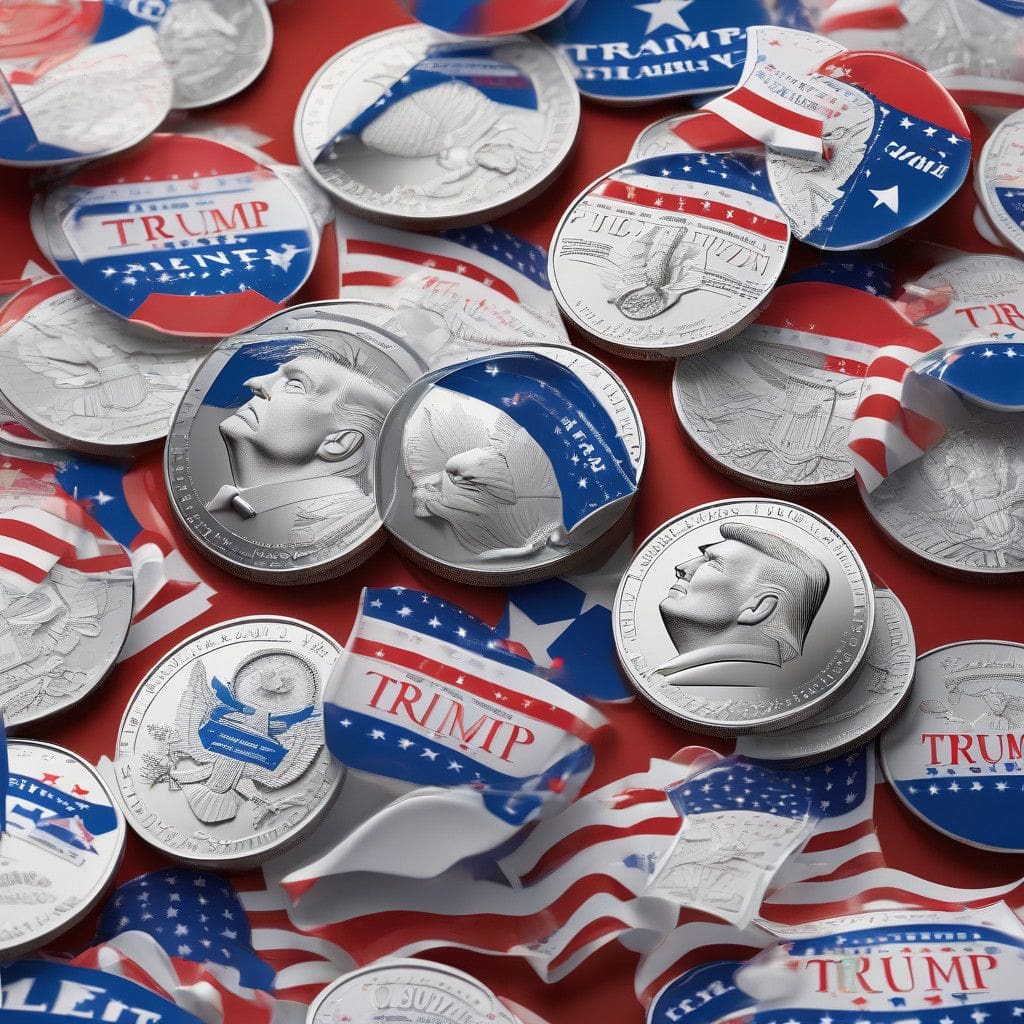Former President Donald Trump has initiated a unique fundraising strategy as he prepares for the upcoming presidential election, unveiling the “President Trump First Edition Silver Medallion.” This limited-edition silver coin, priced at $100, aims to attract individual contributions from supporters eager to back his campaign in a time when financial resources are crucial for any candidate.
The medallion is minted from 99.9% fine silver, ensuring a tangible asset which supporters can both appreciate for its value and as a collectible item linking to Trump’s political legacy. On one side of the coin, Trump’s visage is prominently displayed, symbolizing his leadership and connection to his base. On the reverse side, the medallion features the iconic White House alongside the phrase “In God We Trust,” which resonates deeply with his supporters, reinforcing themes of patriotism and traditional values that Trump champions.
This initiative comes as Trump explores various channels to gather financial backing in a competitive electoral landscape. In his announcement, he clarified that this is the “ONLY OFFICIAL coin” personally designed by him, effectively distancing himself from a plethora of unofficial Trump-themed digital assets that have flooded the market in recent months.
Notably, there has been considerable speculation regarding whether Trump would pivot to a cryptocurrency launch. However, the launch of this traditional silver coin indicates a different strategy. Trump’s supporters had anticipated a digital angle following his earlier introduction of the World Liberty Financial project, which had included a governance token lacking the usual attributes of cryptocurrencies. Instead, the medallion represents a return to physical, collectible currency, appealing to those who prefer tangible investments and memorabilia.
The strategic timing of this launch could also be viewed as a tactical move to capitalize on the heightened political engagement that often surrounds election cycles. According to financial experts, campaign merchandise, particularly when linked to a public figure, can significantly enhance fundraising efforts. For instance, in the 2016 election, merchandise sales for Trump exceeded millions of dollars, demonstrating a precedent for success through tangible collectibles.
This silver medallion serves not just as a tool for fundraising but as a symbol of allegiance among supporters. In political campaigns, collectibles like these can embody a sense of community and shared values, allowing supporters to feel more connected to the campaign. Collectibles can also foster impulse purchases, which can be vital for campaigns that rely heavily on small, individual donations.
The coin is available for purchase on the RealTrumpCoins.com website, further streamlining the process for supporters who wish to contribute financially while obtaining a keepsake that represents their support. This direct-to-consumer approach not only engages his base but also creates a sense of urgency and exclusivity, as the medallion is positioned as a limited-edition item.
However, while the medallion’s launch appears to align with Trump’s typical messaging and marketing style, it also raises questions. Critics may argue that resorting to memorabilia as a fundraising method might overlook the need for substantial policy discussions vital for voters. Yet, in the realm of political campaigning, the blending of personal branding and fundraising is not uncommon. Candidates often leverage their image in a way that builds both a financial base and public persona, as seen with Donald Trump’s previous campaign strategies.
In summary, Donald Trump’s launch of a $100 silver coin reflects a broader strategy of leveraging collectible items for electoral gain. This approach highlights a creative fundraising method in a digitized political landscape while preserving traditional values. Whether this will yield significant financial results as the election approaches remains to be seen. Trump’s proven ability to mobilize his base in support of novel initiatives, however, suggests that this medallion could well become a popular item among his supporters—potentially enhancing his campaign’s financial health.












